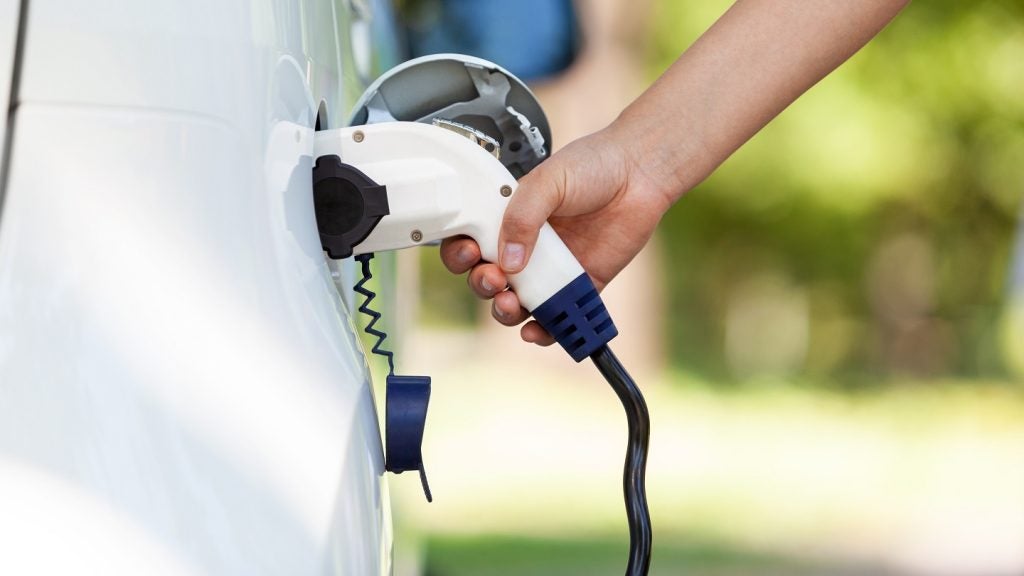
We learn how the Irish motor finance sector has withstood the Covid-19 pandemic, the uncertainty of Brexit, and is preparing for the future.
If this article had come out six months earlier, it would have had a very different tone.
“Up until mid-March of this year, it is fair to say that the sector had been performing well. The fundamentals in the Irish economy were strong, albeit the talking point was still the uncertainty over Brexit and the high levels of used imports from the UK,” says Chris Hanlon, managing director of First Citizen Finance.
There’s no need to tell you what happened after that. The Covid-19 pandemic struck, bringing the market to a standstill until June. Since then the Irish motor finance sector, like virtually every sector, has been focused on recovery.
“Once the dealerships re-opened towards the end of May, as part of the Irish Government’s re-opening of the economy plan, business picked up quite quickly,” Hanlon says. “The market has seen some year on year growth, which surprised us all. Now, in August, we’re still seeing signs of a strong recovery.”
“As with so many parts of our economy, Covid-19 has changed the operating landscape. Pre-lockdown, we were seeing a continuing upward trend in our growth within the used car financing sector where we specialise as car buyers opted to select used rather than new cars and vans. The new vehicle market experienced downward pressure as a result of tax changes,” points out Donal Murphy, managing director of Bluestone Motor Finance. “Since lockdown was lifted, the trend to used car buying has accelerated with tax issues joined by customers’ focusing on the greater value perceived to be offered by a used purchase; something that is common in an economic downturn. We have been delighted to return to lending and I’d say we are cautiously optimistic about the outlook.”
How well do you really know your competitors?
Access the most comprehensive Company Profiles on the market, powered by GlobalData. Save hours of research. Gain competitive edge.

Thank you!
Your download email will arrive shortly
Not ready to buy yet? Download a free sample
We are confident about the unique quality of our Company Profiles. However, we want you to make the most beneficial decision for your business, so we offer a free sample that you can download by submitting the below form
By GlobalDataThe Forgotten Brexit
However, while the Covid-19 pandemic took everyone by surprise, before anyone had heard of coronavirus there was still a potential crisis on the horizon. For the last two years whenever we’ve spoken to the Irish motor finance sector, Brexit has been a popular topic of discussion. This, at least, is an area where the leaders we spoke too felt more confident than before.
“There remains considerable uncertainty around Brexit. However, both businesses and consumers have individual post-Brexit plans. We’re satisfied that we are prepared as best we can,” says Hanlon. “Whilst we don’t have full clarity yet on the outcome of Brexit, it is expected that the current levels of used imports will continue to decrease. Of course, Covid-19 has already impacted on these levels in 2020. Our expectation remains that consumers will be more comfortable making decisions regarding significant purchases again, including motor vehicles.”
Indeed, for many businesses, Brexit has simply no longer been a priority under the current circumstances.
“Brexit will return as an agenda item of that there can be no doubt, but for now, Ireland, the EU, UK and indeed countries across the world are focused upon the social and economic trauma wrought by Covid-19,” Murphy says. “This terrible pandemic will I’m sure impact Brexit’s economic discussions, but we remain in a holding pattern on Brexit right now. Arguably, it will be the EU Recovery Plan that will be more significant.”
Indeed, as Frank Donnellan, managing director of First Auto Finance Ireland, tells us, Covid-19 has all but driven Brexit from most people’s minds: “It’s amazing. Since mid-March Brexit has hardly been mentioned in relation to car sales in Ireland. At the end of February, new car registrations were off 2019 by 5%. In addition, used imports (mainly from the UK) had tanked and at 17,862 units were down year-on-year by 28%. New emissions-related taxation and Brexit were cited by industry commentators as the primary reason for these declines. Fast forward to the end of July and it’s an entirely different picture.”
Donnellan reports new car registrations are off by almost 30%, while used imports are down 50%, a considerably improved position compared to June with demand for new and used remaining strong. But that underlying uncertainty is still present.
“Lockdown was devastating for the motor industry and it was a welcome return when dealerships finally opened on the 18th of May,” Donnellan says. “While there is cautious optimism out there Covid-19 and Brexit will clearly impact the way cars are sold in the future and indeed the volume of sales. Uncertainty continues to be the name of the game. The potential impact of both remains unclear however one thing is certain, the way cars are sold has changed considerably in a very short space of time.”
Withstanding the Pandemic
While Brexit might not be at the forefront everyone’s minds, the fallout from the Covid-19 pandemic is still a fresh wound for many.
“The Covid-19 pandemic has had an immediate and profound impact on the Irish car finance sector from March to mid-June,” Hanlon insists. “During that time, origination levels were very low. Our own focus turned to the management of the live book and we made early special arrangements to assist any customers impacted by the unfolding and unprecedented situation.”
“Covid-19 has affected us significantly, but this will be a common theme across business. We are all in this together,” Murphy reflects. “Car sales and lending stalled. For us, every part of our operation has been challenged as we moved to home-working and reacted swiftly to calls for help from people affected by Covid-19. If we ever wanted a test of our resilience and agility, we have just had it and I’m delighted that we have come through it battle-scarred but ready to dust ourselves down and go again.”
Indeed, the Irish car finance sector’s recovery has closely tracked the country’s efforts to take control of the virus.
Hanlon explains: “The Irish government has taken swift and decisive action to suppress the virus, under the guidance of NPHET (National Public Health Emergency Team) and close monitoring of the situation is ongoing as the economy is slowly being reopened under a phased strategy approach by government.”
Donnellan has also observed strong sales and buoyant demand for used vehicles since motor dealers re-opened.
“Similarly, demand on the forecourt and online, for finance has been robust, to say the least,” he says.
First Auto Finance itself has reported extraordinary proposal levels and indeed record advances to customers for both June and July. They credit this success to a number of factors.
“Firstly, we never closed during the lockdown,” Donnellan says. “All our people worked from home and our sales team was accessible to dealers at all times. We returned fully to our offices on 15 May in preparation for the opening of dealerships on the following Monday. First Auto Finance has been a pioneer in online finance for many years and credits much of their recent success to the time, effort and indeed financial investment over the past five years.”
Across the industry, people we spoke to were pleased with how the motor finance sector has responded to the Covid crisis.
“Operationally, we’ve all managed to deal with the health and safety aspects, by implementing the necessary measures set out by the Government and health authorities. We were able to assist customers who were impacted by Covid-19 and our approach was both swift and effective,” Hanlon tells us. “Our own roadmap to recovery is aligned with the Irish Government’s Roadmap for Re-opening Society and Business plan. The motor dealerships across the country have indeed done an exceptional job in making their own premises safe for both staff and customers alike – notably under very difficult circumstances.”
“We were quick to help customers whose circumstances were impacted by Covid-19. We have tailored a range of forbearance measures for people affected by the virus,” Murphy says. “It has been a rapid learning experience as we moved to home-working and I was delighted at just how well our technology transitioned and how well our team adapted.”
Confidence and Experience
While Covid-19 and Brexit are big, headline-grabbing issues, going forward the key concerns of the leaders we spoke to were far more bread-and-butter.
“Besides Brexit and Covid-19, ensuring the customer experience is at all times a positive one will be key for us – all the time ensuring that we exploit the full potential in emerging technologies,” Hanlon says. “The challenge for all stakeholders in the motor industry is to replace older vehicles with newer more efficient vehicles. We are ready to facilitate this now and beyond 2020.”
“The critical immediate challenge is confidence. As a country, most of us are very well aware of the dramatic impact the credit crunch had on our economy. Only in very recent times have we been able to break free of the lingering shackles it left,” Murphy admits.
“Covid-19 has been a very unwelcome shock, socially, economically and above all for those people for whom its impact has been devastating. These people and the efforts of the key workers must be uppermost in our minds right now. Alongside these, we need to get the economy moving. Success will be about flexibility and taking all possible steps and good practices to limit the chance of any second wave. Consumer confidence has to be earned and we can all play our part in building this by continuing to act responsibly, thoughtfully and positively.”
This ultimately means improving and modernising the customer experience.
“The secondary challenge is enhancing the customer finance journey and getting rid of the friction that is associated with the traditional showroom financing experience. In an environment where app-based banking is common, the market must embrace technology,” Murphy explains. “It is an area upon which we are passionate, leading the way in areas such as e-signatures and the use of open banking and API technologies. Car finance can grow if we make it easier, more transparent and faster for car buyers; we are on a mission to demonstrate that this is the future.”
With those challenges there are also new opportunities, with the used car market, in particular, showing impressive buoyancy.
“Since June, we’ve seen a strong upsurge in the purchase of used cars and this is positive to see as the activity will help many motor dealers get back on their feet after a significantly reduced trading period between March and June,” Hanlon says. “We do believe the biggest opportunities lie within our own offering to the marketplace – all the time strengthening our customer focus and value proposition, delivering national distribution and this is all underpinned by a robust platform.”
“Dealers are seeing far greater traffic on their websites and consumers are seeing digital as the alternative method for buying a new or used car,” Donnellan agrees. “Many dealerships were already very sophisticated in the development of their digital channel, however, those who weren’t, are catching up fast! This has had a considerable impact in ensuring the high levels of activity in car sales during June and July.”
“I think the biggest opportunities will continue to be in the used vehicle sector,” Murphy says. “In the short-term, prices may rise as stock access for dealers is constrained by strong demand for used stock in the UK right now, but this will ease as pent-up demand caused by lock-down reduces and supply improves.
“The other opportunity will be in increasing digitisation of the car buying and financing process and experience. There is a clear opportunity to configure the process of securing finance to support a digital car purchase and deliver a seamless experience for the customer. Introducing open banking processes we see as a key element in the success of this opportunity.”
However the sector evolves in the future, Hanlon is clear that collaboration will be essential for motor finance in Ireland to recover and thrive. He tells us: “We must all work closely and pull together as an industry – particularly now as we face new challenges post-Covid-19 and post-Brexit. Together we are better and working alongside the financial regulator and our industry’s SIMI (Society of the Irish Motor Industry) we can deliver the best solutions for car buyers to suit their needs into the future.”







